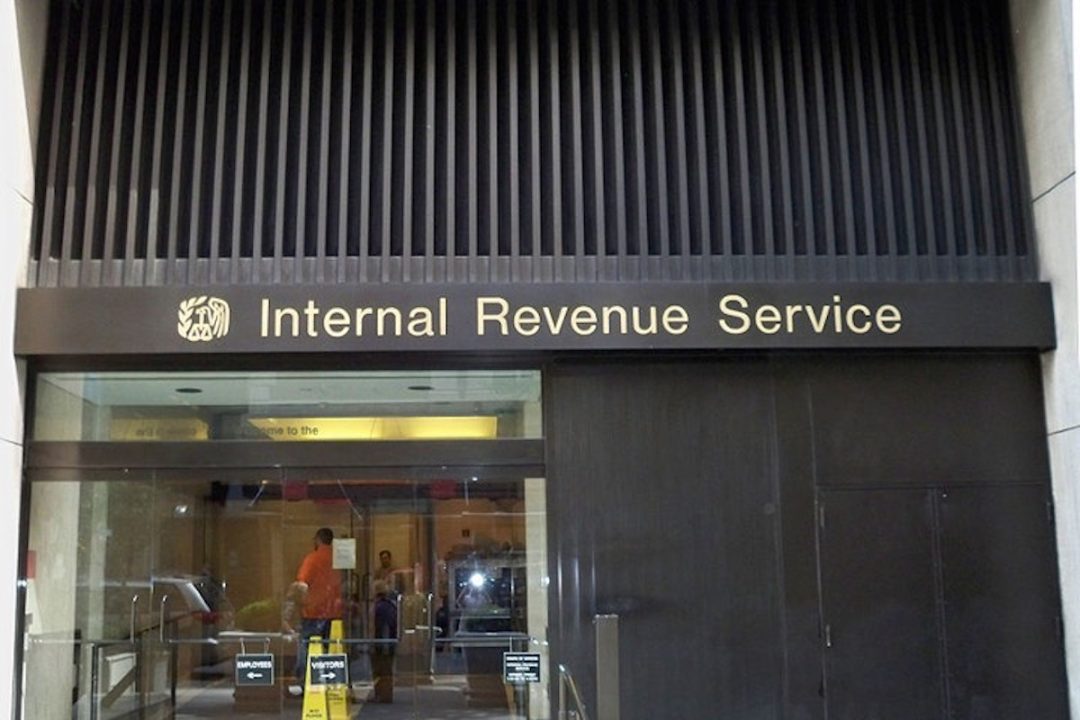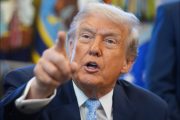
In a move that could redefine the United States’ approach to international trade, President-elect Donald Trump announced plans to establish the External Revenue Service (ERS) on the first day of his presidency. Trump revealed the proposal on his social media platform, Truth Social, describing it as a mechanism to “collect our Tariffs, Duties, and all Revenue that come from Foreign sources.”
In parallel, a group of House Republicans introduced the Fair Tax Act of 2025, a sweeping proposal aimed at abolishing the Internal Revenue Service (IRS) and replacing the current federal tax code with a national consumption tax.
ERS: “Taxing Others”
In his post, Trump implied that the ERS would represent a shift away from domestic taxation as the primary source of federal revenue, favoring income derived from foreign trade.
“For far too long, we have relied on taxing our Great People using the Internal Revenue Service (IRS),” Trump wrote. “The American economy has delivered growth and prosperity to the World while taxing ourselves. It is time for that to change.”
During an appearance on the Joe Rogan podcast last October, Trump discussed the idea of other countries “paying a big price” for “taking Americans’ jobs.” He cited President William McKinley’s tariffs as a potential model.
Trump’s Vision on Tariffs
Tariffs have been one of the central themes of Trump’s economic platform. During his campaign, he proposed tariffs of up to 100 percent on Chinese goods. “If that does not work, I’ll go 200 percent. I don’t care,” Trump said at one point.
Other countries would face a 10- to 20-percent tariff, said the then-candidate.
As reported by The New American, after being elected, Trump threatened increased tariffs on Canada and Mexico to address immigration and drug-trafficking concerns. He also promised to slap a 100-percent tariff on goods from the BRICS nations unless they commit to refraining from creating a currency to rival the U.S. dollar.
The idea of using tariffs as a primary revenue source is not new. It hearkens back to the pre-20th century era, when tariffs accounted for much of the federal budget. Trump’s vision aligns with this historical approach, as has been maintained by Steve Bannon, his former advisor. Bannon reiterated his position on Tuesday, according to Politico.
Immediate Impact
However, the economic impact of such tariffs is contentious. Studies of tariffs imposed during Trump’s first term revealed that they increased consumer prices. The tariffs also increased costs for U.S. businesses, as they were largely passed on to domestic firms and higher import costs affected manufacturers reliant on Chinese components.
In addition to that, retaliatory tariffs from trading partners further disrupted supply chains and global trade. For instance, China targeted American agricultural products. That caused U.S. farmers to lose market access and forced some to depend on government subsidies to offset losses. Similarly, the European Union imposed tariffs on goods such as motorcycles, blue jeans, bourbon, and orange juice, directly impacting U.S. manufacturers and producers.
“Tariffs are a tax on Americans (not China, or anyone else),” warned former congressman and principled constitutionalist Ron Paul in October while advocating for free trade in promoting economic growth.
All in all, to ensure tariffs benefit the domestic economy, policymakers should pair them with measures to support local industries and consumers. Investments in domestic production, workforce training, and innovation can strengthen competitiveness and reduce reliance on imports. Complementary trade agreements, supply chain diversification, and export incentives can offset disruptions while stabilizing trade balances.
Constitutionality of the ERS
The creation of the ERS as proposed by Trump raises significant constitutional questions. Under the U.S. Constitution, the power to impose and collect taxes, duties, and tariffs is vested in Congress. Article I, Section 8 explicitly grants Congress the authority “to lay and collect taxes, duties, imposts, and excises,” and to regulate commerce with foreign nations.
To establish a new federal agency like the ERS, Trump would require congressional approval. This poses a challenge, as previous attempts (see here and here) to shift trade policies or reorganize federal revenue mechanisms have sparked intense debate and partisan division. If Trump were to bypass Congress in establishing such an agency, it could invite judicial scrutiny for potentially violating the separation of powers.
Additionally, the ERS could overlap with the existing responsibilities of U.S. Customs and Border Protection (CBP), which is already tasked with collecting tariffs and enforcing trade laws. Creating a new agency could lead to redundancy and inefficiency, potentially violating constitutional principles of limited government.
The constitutionality of the ERS will undoubtedly become a central issue as the proposal progresses, with debates expected to test the boundaries of executive power and legislative authority.
Abolish the IRS
As the president-elect teases about launching his ambitious tax and trade agenda, the Fair Tax Act of 2025 emerges as a parallel effort by GOP lawmakers to transform the federal taxation system. This proposal aligns with Trump’s push to reduce reliance on domestic income taxes.
Introduced last Thursday by Rep. Buddy Carter (R-Ga.), the Fair Tax Act seeks to abolish the Internal Revenue Service (IRS). It would also replace personal and corporate income taxes, payroll taxes, and estate and gift taxes with a national consumption tax. This “fair tax” would function as a 23-percent national sales tax starting in 2027.
Revenue generated from the consumption tax would support general government functions, Social Security, and healthcare trust funds. According to the analysis done by Money Crashers, advocates argue this system would simplify tax collection, eliminate the IRS, and incentivize savings and investment. Critics counter that the tax could disproportionately burden lower-income households, as they spend a greater share of their income on taxable goods and services. They also raise concerns about a high sales-tax rate encouraging tax evasion, such as cross-border purchases or underreported transactions.
The proposal’s introduction occurs as the IRS faces a wave of challenges. Those include enforcement funding cuts, anticipated leadership changes under Trump, and GOP efforts to defund the IRS’s Direct File program.
Although the Fair Tax concept has been periodically introduced since the 1990s, its chances of becoming law remain uncertain, hinging on the political climate under the new administration.





